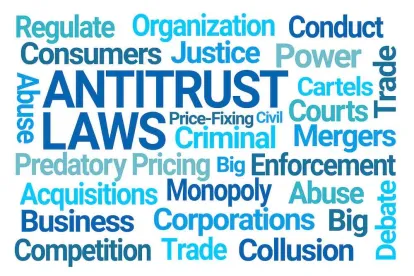The Federal Trade Commission (FTC) has reimplemented a policy of requiring all merger enforcement orders to include the requirement that acquisitive firms obtain prior approval from the FTC before closing any future transaction in the relevant market. The new policy, approved by a 3-2 vote over the dissent of both Republican appointees, follows the prior rescission of the FTC’s 1995 policy statement that rejected prior approval requirements due in part to the high cost imposed on companies subject to such orders, the effectiveness of the notification requirements of the Hart-Scott-Rodino Antitrust Improvements Act, and the harm caused by disparate enforcement application made possible by the prior approval requirements.
The new policy goes further than the pre-1995 policy in its effort to deter mergers. For example, the FTC now:
-
will consider seeking prior approval requirements in transactions that are abandoned after litigation commences but before trial;
-
may, in “situations where stronger relief is needed,” seek prior approval that covers products and geographic markets beyond just the relevant markets affected by the merger at issue; and
-
will require buyers of divested assets to agree to prior approvals of any future sale of those divested assets for a minimum of 10 years.
In dissenting from the issuance of this new policy, Commissioners Christine Wilson and Noah Phillips summarized their views as follows:
The 2021 Policy Statement represents yet another daft attempt by a partisan majority of commissioners to use bureaucratic red tape to weight down all transactions—not just potentially anticompetitive ones—and to chill M&A activity in the United States. Notably, the majority goes far beyond the status quo that existed before the FTC adopted its 1995 Policy Statement on Prior Notice and Prior Approval. Today’s action constitutes yet another end-run around the Hart-Scott-Rodino pre-merger notification framework that Congress established in 1976. In attempting to justify its actions, the majority oversells the benefits of its actions and significantly undersells the harms, including further divergence from the Antitrust Division of the Department of Justice with respect to merger review policies. And once again, the majority that ostensibly seeks to “democratize” the FTC has denied the public the opportunity to provide notice and comment on an important policy issue.





 />i
/>i


